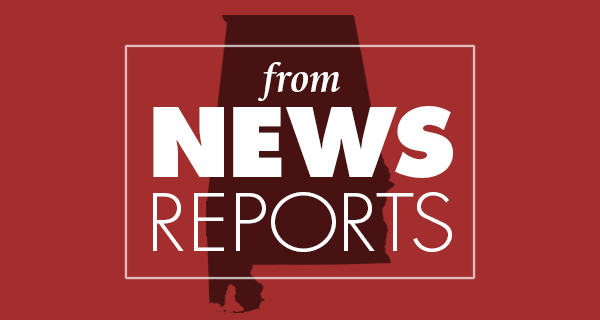By Maggie Walsh
The Alabama Baptist
The lottery bill for the 2016 special session is dead,” announced the measure’s sponsor, Sen. Jim McClendon, R-Springville, on Aug. 26 after the Senate voted against agreeing with the House changes to the bill (SB3).
The House changes included defining the lottery as paper tickets, an attempt to prohibit electronic lottery terminals, and earmarking 1 percent of lottery proceeds to rural fire departments.
It was the narrowed definition of the lottery that drove the 7–23 vote that signaled the demise of the bill, several legislators said.
Joe Godfrey, executive director of the Alabama Citizens Action Program, celebrated the defeat of the gambling legislation.
“As we suspected, when the House amended the bill to exclude casinos that is not what the pro-gambling people wanted,” Godfrey said. “There were different motives for voting ‘no,’ but at this point we are celebrating the defeat of pro-gambling legislation in Alabama.”
The lottery bill’s ride through the special session was riddled with unexpected twists and turns, including confusion over when the deadline was to get the bill on the Nov. 8 ballot. McClendon and Sen. President Pro Tem Del Marsh, R-Anniston, both claimed Aug. 24 — the previously announced deadline for the November general election ballot — that they had until Aug. 26 to get the measure on the November ballot, causing mass confusion as conflicting opinions surfaced. All speculation, however, became irrelevant once the Senate voted down the changes to the bill.
In a roller coaster of votes and motions just before midnight Aug. 25, the bill fell short of passing by two votes in the House. The victory was short-lived by lottery opponents, however, as supporters won a reconsideration motion as well as a second vote, pushing the lottery bill through. The bill’s House sponsor, Rep. Alan Harper, R-Northport, made the motion to reconsider.
Rep. John Knight, D-Montgomery, said after the two votes, “I’ve been here a while, but you are thoroughly confusing me now.”
And the rest of Alabama was right there with him.
On the second vote three representatives made the difference for the 64–35 vote — Darrio Melton, D-Selma; Kelvin Lawrence, D-Hayneville; and David Sessions, R-Grand Bay.
That sent the bill back to the Senate — where it had already passed Aug. 19 — for either a concurrence, or agreement, vote or a conference committee since some changes had been
made to the bill in the House. Marsh said there was not enough time left in the special session to start over and get a lottery bill passed.
Both the House and Senate voted to adjourn until Sept. 6, at which point there will be three days left in the special session to find a solution to the $85 million Medicaid shortfall.
When they reconvene Sept. 6, the Senate is expected to address the BP bill (HB36) that the House passed earlier in the session. This bill would issue bonds estimated at about $639 million and apply $850 million in BP payments to pay off the bonds. The bond proceeds would partly be used to pay off state debt, which would free up about $70 million for Medicaid, according to al.com.
Recurring chant
The recurring chant in the State House on Aug. 26 from legislators was “I’ve never seen anything like this,” referring to the wild ride of SB3.
If passed, SB3 would have established a statewide and Powerball lottery and directed 10 percent of lottery proceeds to education after the $100 million, which was allotted for Medicaid. Gov. Robert Bentley claimed the lottery would generate $225 million in revenue, an estimate that Andrew A. Yerbey, senior policy counsel for the Alabama Policy Institute, called “unreliable and untruthful.”
Godfrey urged Alabamians to contact their legislators to urge them to vote in favor of HB36 “so that gambling will not be needed to solve the Medicaid problem in our state,” he said.






Share with others: